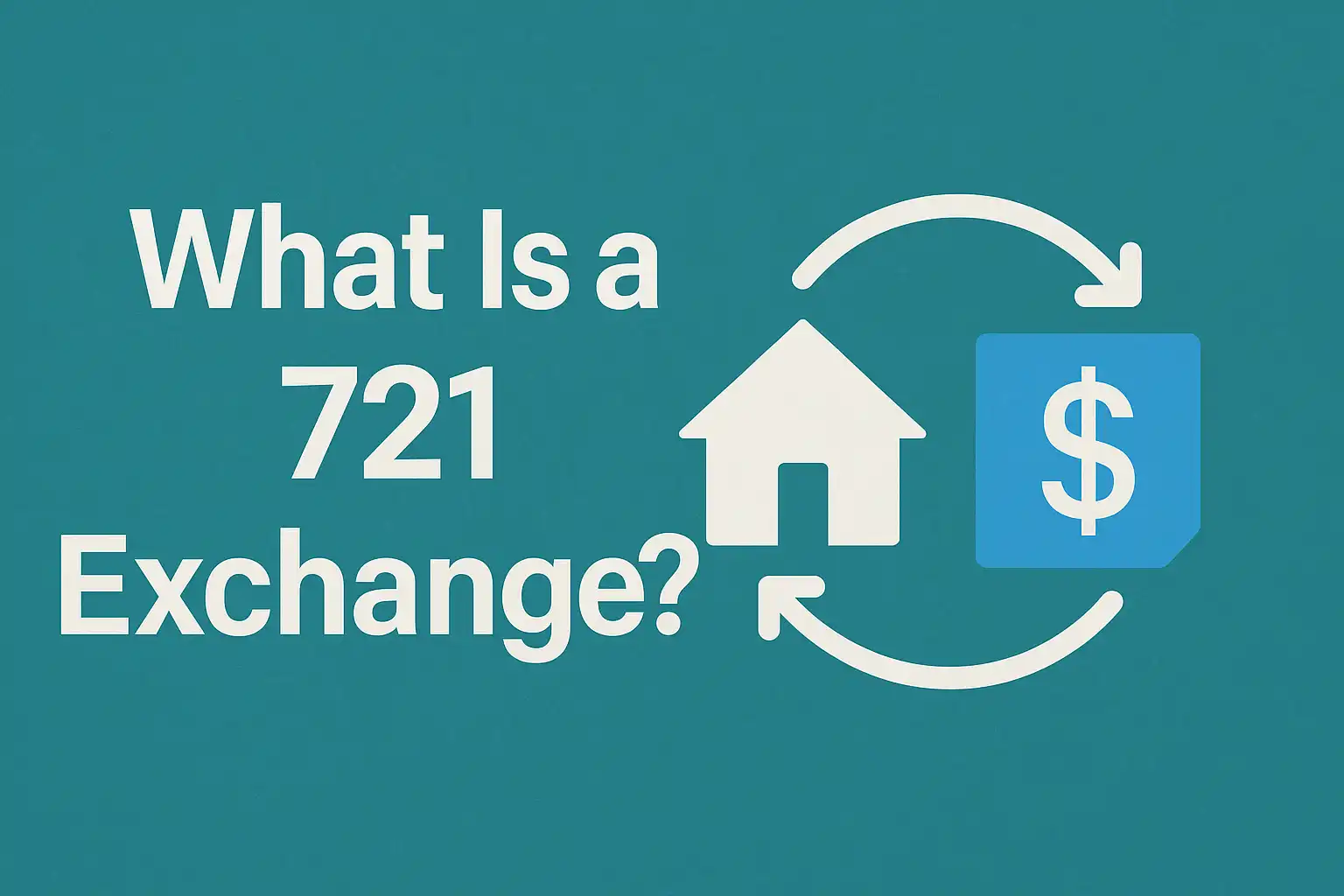
Numerous companies offer 721 exchange investment opportunities. One of the newer firms is Denver-based Flock Homes. The company sends proposals out to deed holders. Perhaps you’ve received one.
Seniors who own investment properties are especially likely targets of these pitches. Flock calls it “the retirement solution for landlords.”
Let’s take a look.
What Is the 721 Exchange?
The term comes from IRS Code Section 721. This provision of the law lets high-equity real estate owners avoid capital gains tax by transferring their property into a fund in exchange for a partnership interest.
Marketers describe the 721 exchange as a way to offer senior deed holders (or their heirs) a way to trade real estate they don’t need for positions in real estate funds. At the same time, the deed holders defer capital gains taxes they might have paid in regular sales.
The company could send you a purchase offer. It’s based on an automated appraisal. It’s not final; they’ll still inspect the home. They will also take out a sum to cover the work needed to revamp the home as a rental.
If you accept the company’s appraisal, you’ll receive a Contribution Agreement to sign. Flock Homes calls this document “similar to a Purchase and Sale Agreement” although you do not receive cash for the deed. So this is not the same thing as a traditional home sale.
You’ll pay the necessary deductions and fees. On the other side of the coin, you won’t have to hire a real estate agent to market your home.
(For details on fees, refer to the Flock Homes Fee Document.)
Assume you have a second home that you’ve been renting out. Your circumstances have changed, and you no longer wish to keep the property and do the maintenance and deal with renters. But you did appreciate the income! To keep money coming in, but say goodbye to the upkeep tasks, you might accept an offer from a 721 exchange company. The Flock company puts it in a nutshell: “Exit your real estate, without giving up your hard earned gains.”
You’ll exchange your deed for the value of your equity, which you’ll get as shares in the company’s fund. The company will then add your property to the collection of homes it maintains and rents out.
How Is the Fund Set Up?
Companies of this sort might hold hundreds of homes. At the time of this writing, Flock’s website says it holds 930 homes, for a total of $210 million in real estate value.
The company rents out these homes, and the income from its real estate portfolio funds the investors’ payouts. Investors receive their dividends on a quarterly basis. They have access to an investor platform where they can keep up with their home’s income-generating activity.
Participants in this investment model receive shares in a REIT. A REIT, or real estate investment trust, is a taxable company. In practical terms, it acts much like a mutual fund. Its key benefit is the ability to take an illiquid asset (real estate) and turn it into money.
By federal law, a REIT must:
- Be run by trustees or a board of directors.
- Have 100+ shareholders.
A 721 exchange REIT charges property management fees, typically deducting them from the regular dividends it pays the investors.
What Are the Risks?
The fund has to issue at least 90% of its taxable income as dividends to investors. Otherwise it cannot qualify for REIT status.
Assume that income in the world of rental properties is always in flux. Dividends can go up and down along with the real estate market.
You’ll want to know if this is the best way to reduce your particular tax load. And you’ll want to know, especially if dealing with a relatively new company, what would happen to your funds if the company faces financial setbacks.
Speak with your financial adviser about risks inherent in this or any other investment opportunity. Advisers generally tell prospective investors not to invest what they cannot afford to lose.
Supporting References
FlockHomes.com.
And as linked.
More on topics: Six steps to a 1031 exchange, Real estate investment “hustle culture”
